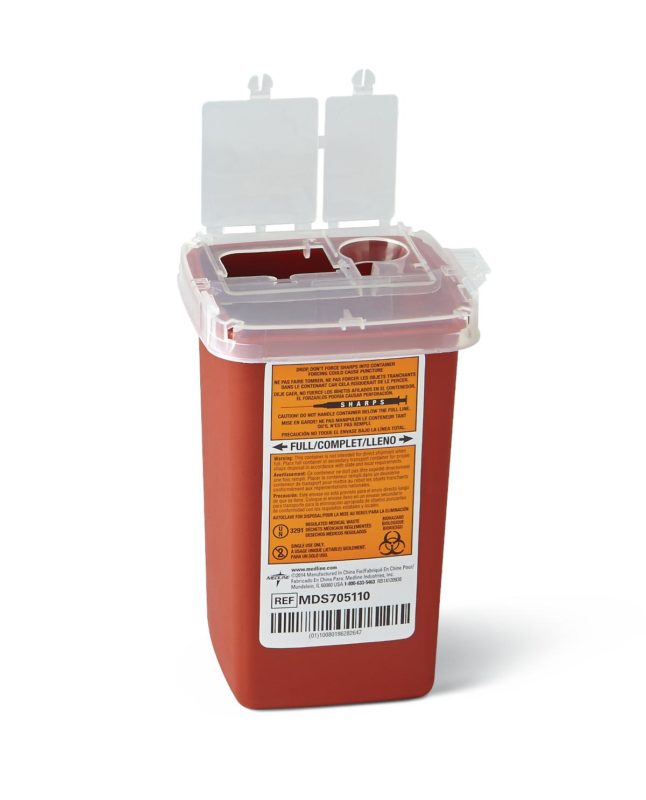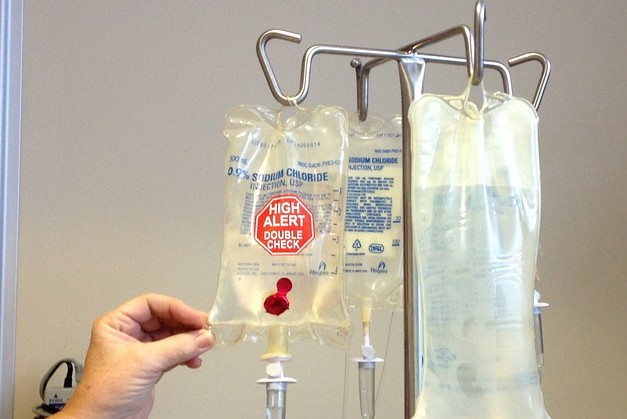Area Care: Seamless and Reliable Medical Waste Removal Near Me
Area Care: Seamless and Reliable Medical Waste Removal Near Me
Blog Article
Remain Compliant and Safe: How to Throw Away Medical Waste Appropriately
In today's ever-changing health care landscape, making sure conformity and safety and security when it comes to clinical waste disposal is of utmost importance. In this discussion, we will discover the numerous kinds of clinical waste, the affiliated threats, the lawful needs, and the ideal techniques for keeping a certified and secure clinical waste monitoring system.
Relevance of Correct Clinical Garbage Disposal
Correct clinical garbage disposal is of utmost value in making sure the security and wellness of both health care workers and the basic public. Medical waste, that includes items such as used needles, infected dressings, and ran out drugs, postures significant wellness dangers if not dealt with and gotten rid of properly.

In addition, inappropriate disposal of clinical waste can cause ecological contamination. When clinical waste is not segregated, treated, or disposed of appropriately, it can discover its method into land fills or bodies of water, possibly polluting the water, air, or dirt sources. This can have damaging results on environments and human wellness, as dangerous materials might seep into the environment or be launched into the atmosphere.
Kinds Of Clinical Waste and Their Risks
The varied variety of medical waste produced by healthcare centers provides various dangers that should be carefully resolved to guarantee proper disposal and prevent possible harm to public wellness and the atmosphere. Clinical waste can be classified right into different classifications based on its characteristics and level of threat.
One type of clinical waste is infectious waste, that includes items that are polluted with blood or various other possibly infectious products. This can consist of used needles, syringes, and various other sharp objects, in addition to cells, swabs, and dressings from clients with transmittable diseases. Inappropriate disposal of infectious waste can cause the transmission of dangerous microorganisms and the spread of infections.
An additional category is contaminated materials, which consists of materials that are hazardous, flammable, destructive, or responsive. This can include chemicals, pharmaceuticals, and particular clinical devices. Mishandling or incorrect disposal of contaminated materials can lead to ecological contamination and pose risks to the health and wellness of waste employees and the basic public.
Contaminated waste is another sort of clinical waste that must be thoroughly handled. This waste consists of products that contain radioactive compounds, such as utilized radiation therapy resources or infected laboratory supplies. Improper handling or disposal of radioactive waste can result in radiation exposure and severe wellness threats.
Lastly, non-hazardous general waste, such as paper, packaging materials, and food waste, is also generated by healthcare facilities. While this waste may not position considerable threats, it still needs to be correctly handled to maintain tidiness and avoid the tourist attraction of pests.
To make certain the secure disposal of clinical waste, medical care centers need to execute proper segregation, storage, therapy, and transport approaches. This consists of using appropriate containers, labeling, and training for team, in addition to abiding by regional policies and guidelines. By addressing the threats connected with different kinds of medical waste, medical care centers can shield public health and wellness and the environment.
Regulative and lawful Demands for Disposal
In order to ensure the correct and risk-free disposal of clinical waste, health care facilities need to adhere to lawful and regulatory needs. These needs are in area to safeguard public wellness and the atmosphere from the possible risks related to medical waste. Medical waste is classified as an unique category of waste because of its potential to transfer transmittable diseases and consist of damaging materials.

Some typical needs consist of the segregation and proper packaging of clinical waste, using authorized tags and containers, and the implementation of safe handling and transportation procedures - medical waste removal service. Health care facilities might also be required to maintain records of their waste administration methods and supply documents to governing authorities upon demand
Failing to abide with these legal and regulative requirements can lead to charges, Source fines, and reputational damage for healthcare facilities. It is, for that reason, important for health care carriers to focus on conformity and establish robust waste management protocols to ensure the proper and safe disposal of medical waste.
Best Practices for Safe Medical Waste Management
Medical care centers need to comply with industry best practices to make certain the risk-free and efficient monitoring of clinical waste - medical waste disposal services with WasteX. Executing these ideal practices not just helps secure the environment and public health and wellness yet likewise reduces the danger of possible legal and monetary effects
Among the essential ideal practices is the appropriate partition and control of different sorts of clinical waste. This involves utilizing color-coded containers and plainly identifying them to ensure that each type of waste is disposed of properly. In addition, healthcare facilities must have marked locations for storage and disposal of medical waste, with clear additional resources standards and procedures in position.
An additional important aspect of risk-free clinical waste monitoring is the training and education and learning of healthcare staff. All workers that take care of clinical waste should receive extensive training on the appropriate handling, storage space, and disposal treatments. It is crucial to ensure that personnel are aware of the potential risks associated with medical waste and are geared up with the required understanding and skills to handle it safely.
Routine surveillance and bookkeeping of waste monitoring techniques is additionally crucial. This entails regularly reviewing waste management treatments, performing evaluations, and maintaining exact records. By keeping an eye on waste management practices, medical care facilities can recognize any possible concerns or areas for renovation and take rehabilitative actions accordingly.
Lastly, medical care centers ought to prioritize the use of eco pleasant disposal techniques whenever possible. This consists of using waste treatment modern technologies such as autoclaving or incineration, which can help in reducing the quantity and dangerous nature of medical waste.
Eco-Friendly Solutions for Medical Garbage Disposal
Executing environmentally friendly solutions for clinical waste disposal is essential for medical care facilities to minimize environmental impact and make sure sustainable techniques. Standard methods of clinical waste disposal, such as incineration and landfilling, have actually been found to launch hazardous contaminants right into the air and pollute dirt and water sources. Therefore, there is a growing demand for alternate approaches that are both eco pleasant and safe.
One environment-friendly solution is the execution of on-site waste treatment systems. These systems utilize advanced innovations to securely process clinical waste within the medical care center itself. By treating the waste on-site, transport exhausts and risks related to off-site disposal are reduced. Furthermore, these systems often employ sophisticated sterilization techniques, such as steam or microwave treatment, to make certain the complete damage of transmittable microorganisms.
An additional eco-friendly method is the adoption of recycling programs for sure kinds of medical waste. Products such as glass, plastics, and steels can be reused instead of disposed of in landfills. By implementing segregation and recycling programs, health care facilities can dramatically lower their waste volume and lessen their ecological footprint.
Moreover, health care facilities can check out the use of recyclable medical equipment and supplies. By going with reusable items, instead of single-use choices, the quantity of waste created is dramatically minimized. Recyclable products can be sanitized and utilized several times, leading to cost financial savings and much less environmental impact.
Conclusion
In conclusion, appropriate disposal of medical waste is visit the site vital for maintaining conformity and ensuring security. Adhering to best methods for risk-free clinical waste administration and discovering environmentally friendly options can add to a responsible and sustainable technique to waste disposal in the health care industry.
In this conversation, we will certainly explore the various types of clinical waste, the associated dangers, the lawful needs, and the best practices for preserving a compliant and risk-free clinical waste management system - medical waste removal service.One kind of clinical waste is transmittable waste, which includes items that are contaminated with blood or other possibly infectious materials.Radioactive waste is one more type of medical waste that have to be carefully managed. Medical waste is classified as a special classification of waste due to its potential to transmit infectious diseases and include dangerous compounds
Complying with finest methods for risk-free medical waste administration and checking out eco-friendly solutions can contribute to a sustainable and responsible strategy to throw away disposal in the health care market. medical waste disposal services with WasteX.
Report this page